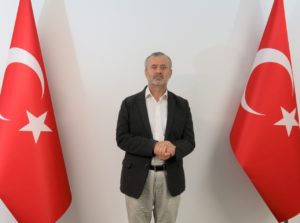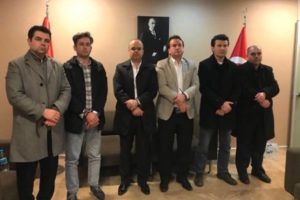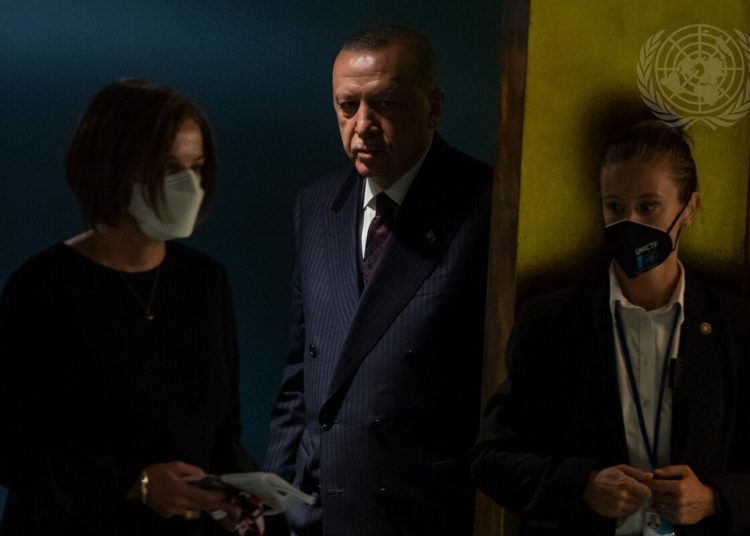Abdullah Bozkurt/Stockholm
A German nongovernmental organization in special consultative status with the United Nations called for member states to stop cooperating with the Turkish intelligence agency over threats to exiled critics.
The Society for Threatened Peoples (Gesellschaft für bedrohte Völker, STP), a Göttingen-based NGO, submitted a written statement to the UN Human Rights Council (UNHRC) In Geneva highlighting the role of the Turkish intelligence agency (Milli İstihbarat Teşkilatı. MIT) in systematic attacks, threats and intimidation of Turkish opposition members in exile.
In a statement circulated for the 48th regular session of the UNHRC, held between September 13 and October 11, 2021, the German NGO asked the UN to call on member states to prevent any cooperation with MIT to exchange information because such action would lead to violence, kidnapping or persecution of critics, opponents and dissidents who live in exile.
“Time and again, anti-government Turkish journalists, writers, activists and politicians have been threatened and attacked. Recently, the German government confirmed the existence of so-called death lists, on which up to 55 Turkish exiles are said to be named,” the statement said.
The advocacy group noted that Turkey plays a leading role in transnational oppression while many European Union and NATO governments continue to support to Turkey and remain silent on the Turkish government’s actions against exiles.
The German NGO asked the UN to reprimand Turkey
The statement gave a detailed account of attacks and threats against Turkish journalists in Germany, listing the cases of journalists Engin Enes Sag, Fatih Akalan, Cevheri Güven, Erk Acarer, Gökhan Yavuzel and Celal Başlangıç, who were subjected to violence or threats over their critical coverage of Turkey.
Society for Threatened Peoples submitted a statement to the UN Human Rights Council on threats against exiled critics of Turkey:
The German NGO recalled in its statement the kidnappings MIT perpetrated in Kosovo and Kyrgyzstan and said those who were forcibly taken to Turkey faced torture and ill-treatment.
It also pointed out the denial of consular services to critics by Turkish missions abroad, saying that such practices have negative repercussions for regime opponents and their family members.
“The witch-hunt against exiles of Turkish origin continues unabated worldwide. Those who have been targeted by the TR security authorities no longer receive any consular services at Turkish consulates general and embassies. This also applies to their spouses and, oftentimes, their children. Anyone who dares to go to the Turkish missions abroad will have his or her passport taken away,” the STP said.
“This denial of any consular services has fatal consequences for those affected: Those who cannot show a valid passport will not have their visas extended in the respective host countries. As a consequence, they face deportation,” it added.
The German NGO asked the UN to reprimand Turkey for its persecution of exiles; call on member states to grant asylum status unproblematically to exiles of Turkish origin given the denial of consular services; call on member states to prevent any cooperation with the Turkish secret service to exchange information; condemn attacks on exiles by Turkish nationalists; and call on member states to intensify their protection of exiles.

The Gülen movement, a group that is opposed to the government of President Recep Tayyip Erdoğan, and the Kurdish political movement have been receiving the brunt of the crackdown in recent years. The witch-hunt is not just confined to Turkey, since the Erdoğan government has escalated the campaign in foreign countries, with MIT kidnapping and forcibly returning critics, in particular members of the Gülen movement.
The kidnappings of critics abroad has long been on the agenda of UN special committees. In May 2020, UN rapporteurs Luciano Hazan, chair-rapporteur of the Working Group on Enforced or Involuntary Disappearances; Felipe González Morales, special rapporteur on the Human Rights of Migrants; Fionnuala Ní Aoláin, special rapporteur on the Promotion and Protection of Human Rights and Fundamental Freedoms While Countering Terrorism; and Nils Melzer, special rapporteur on Torture and Other Cruel, Inhuman or Degrading Treatment or Punishment sent a joint letter to the Turkish government to express their concern about the “systematic practice of state-sponsored extraterritorial abductions and forcible return of Turkish nationals from multiple States to Turkey.”
The rapporteurs also requested information on the role of Turkey’s intelligence agency and other institutions in those kidnapping operations. “The Government of Turkey, in coordination with other States, is reported to have forcibly transferred over 100 Turkish nationals to Turkey, of which 40 individuals have been subjected to enforced disappearance, mostly abducted off the streets or from their homes all over the world, and in multiple instances along with their children,” the letter said.

Turkish embassies were also used venues to plot the kidnappings in coordination with MIT agents, according to multiple reports published in recent years.
For instance, Turkey’s Pristina embassy, according to local sources in Kosovo, was key to the logistics and planning of an abduction and served as the detention venue for the abduction operation. The Turkish nationals — Cihan Özkan, Kahraman Demirez, Hasan Hüseyin Günakan, Mustafa Erdem, Yusuf Karabina and Osman Karakaya — were kept for a time at the embassy chancery or the residence of then-Turkish Ambassador Kıvılcım Kılıç on March 29, 2018. It was alleged that MİT was instructed to kidnap five Turks but that Özkan was added to the list in Pristina by Ambassador Kılıç. The Cumhuriyet daily reported that pictures were taken on the Turkish Embassy premises in Pristina by the state-run Anadolu news agency after their arrest.
The former Turkish ambassador in Pristina was rewarded for her services in Kosovo by President Erdoğan, who appointed her director-general for the Council of Europe and Human Rights at the foreign ministry.

The joint UN letter also revealed how the Turkish Embassy in Phnom Penh attempted to deceive Cambodian authorities in order to request the extradition of Mexican citizen Osman Karaca, who is of Turkish origin. According to the UN document, the Turkish diplomatic mission reported to the Cambodian police that Karaca was holding a fraudulent Mexican passport, after which the authorities arrested Karaca. “The Turkish Embassy then demanded his deportation to Turkey due to ‘the lack of an international travel document.’ It is also alleged that the Turkish authorities have bribed local officials to secure their cooperation in illegal actions to arbitrarily arrest him,” the letter said.
To secure his release from detention and ward off an attempt at an illegal extradition, the Mexican Embassy in Hanoi, accredited to Cambodia, had conveyed a note verbale to prove Karaca’s Mexican citizenship and attached a copy of his passport in its communication to Cambodian authorities.
However, Karaca was detained based on the embassy’s fabricated argument. The Turkish Embassy then pursued a smear tactic against Karaca and demanded his deportation due to the lack of an international travel document. Since Aydan Ünlü, the Turkish ambassador in Phnom Penh, was well aware of Karaca’s status and the political nature of the demand, she didn’t hesitate to violate both international conventions and the regulations of the receiving state by submitting falsified arguments to Cambodian police in order to win the praise of President Erdoğan.












